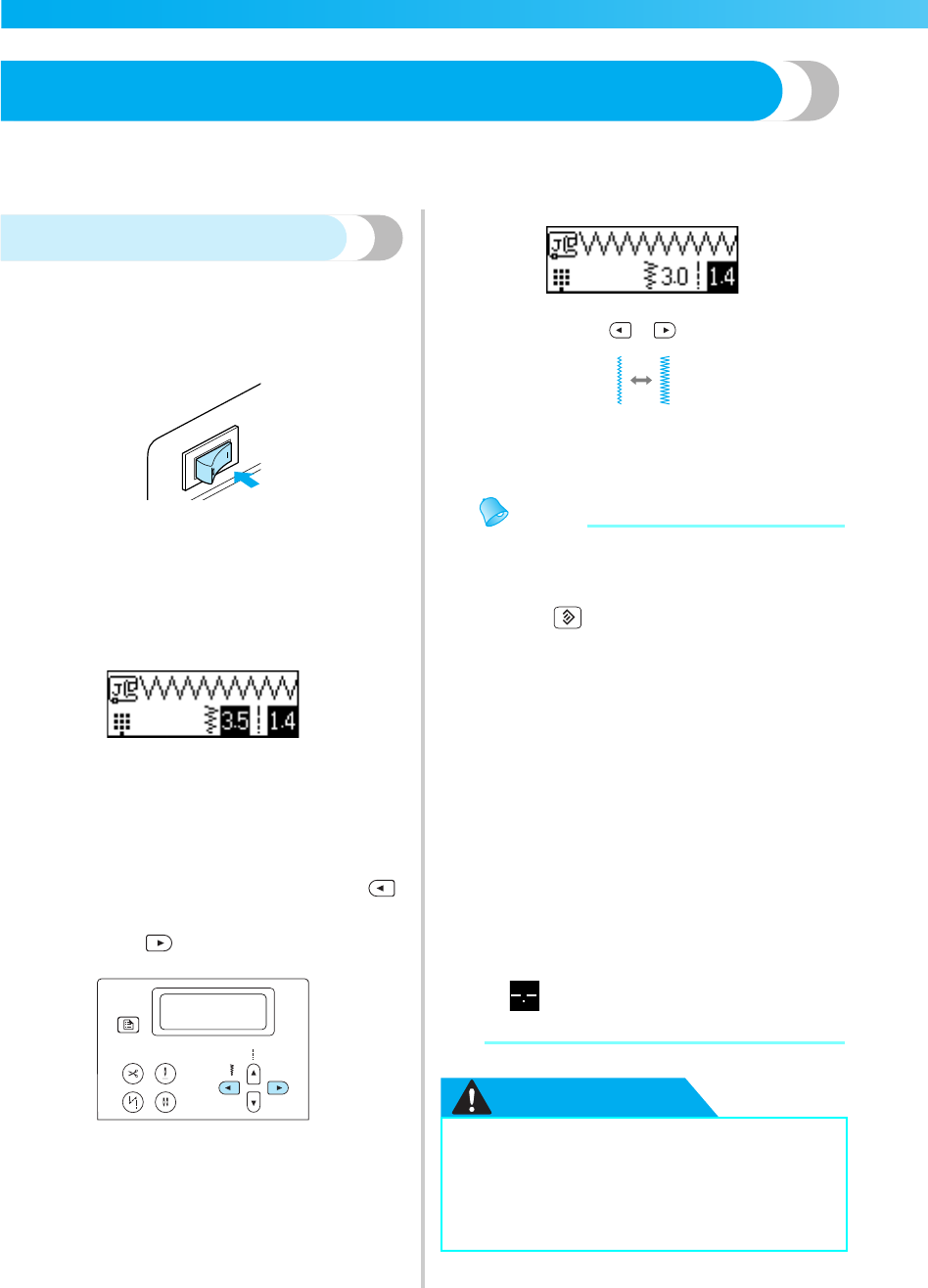
SEWING BASICS — — — — — — — — — — — — — — — — — — — — — — — — — — — — — — — — — — — — — — — — — — — —
—
58
Adjusting the Stitch Width and Length
The zigzag width (pattern width) and stitch length of utility stitches can be adjusted. Normally, when a
stitch is selected, the appropriate width and length are automatically selected. For details on the range of
values within which the width and length can be set, refer to “Stitch Settings” (page 134).
Adjusting the stitch width
The stitch width (zigzag width) can be adjusted to
make the stitch wider or narrower.
a
Turn on the sewing machine.
X The LCD comes on.
b
Select a stitch.
X A screen containing settings for the selected
stitch appears.
• For details on selecting a stitch, refer to
“Selecting stitching” (page 72).
• Immediately after the stitch is selected, the
standard settings (highlighted) appear.
c
To make the stitch width narrower, press
(Stitch width key). To make the stitch width
wider, press (Stitch width key).
X The stitch width is changed.
• If the setting is changed, the highlighted
value is erased.
Memo
z To reset the stitch width to its standard
setting, select the same stitch again or
change the setting to the highlighted value.
z Press (Reset key) to return the stitch
width, stitch length to their default settings.
z If the straight stitch (left needle position or
triple stretch stitch) was selected, changing
the stitch width changes the needle position.
Increasing the width moves the needle to the
right; reducing the width moves the needle
to the left.
z The settings can be saved so that they will
always be specified each time the utility
stitch is selected. For details, refer to “Saving
stitch settings” (page 63).
z The sewing machine can be set so that the
stitch width can easily be changed with the
sewing speed controller. For details, refer to
“Satin stitching using the sewing speed
controller” (page 105).
z indicates that the setting cannot be
adjusted.
CAUTION
● After adjusting the stitch width, slowly
turn the handwheel toward you and
check that the needle does not touch the
presser foot. If the needle hits the presser
foot, the needle may bend or break.
–
+


















